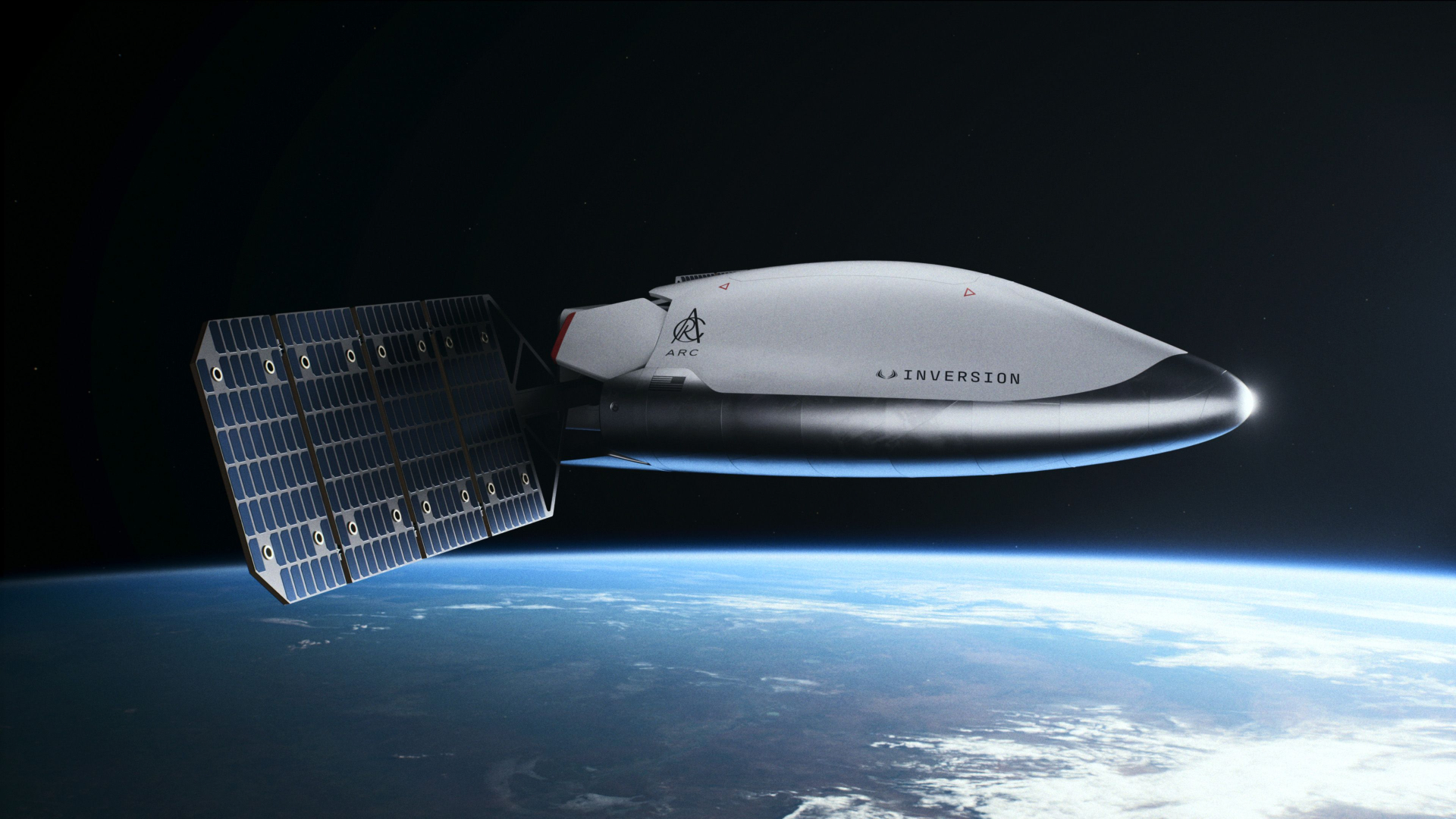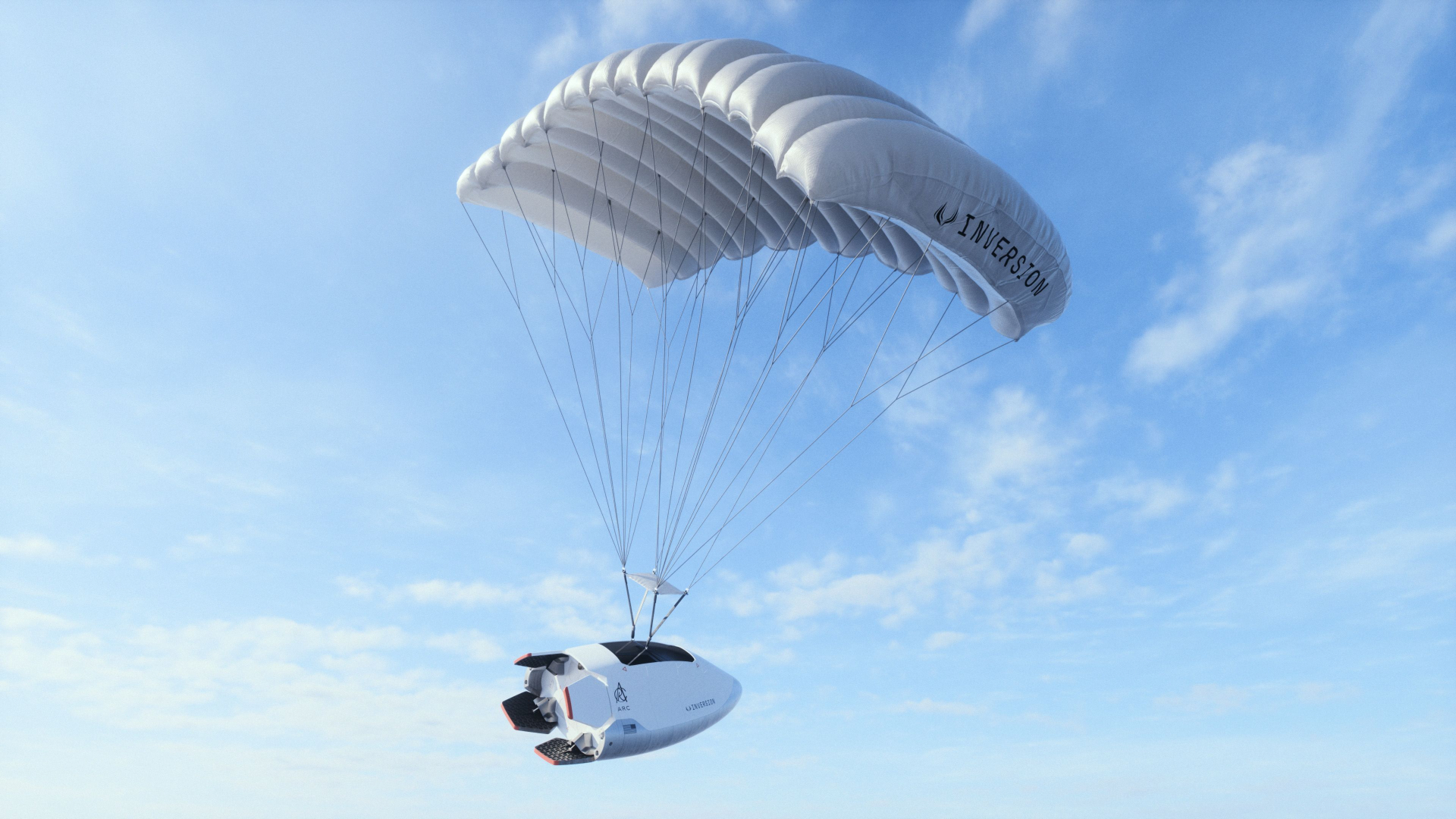New private 'Arc' spacecraft aims to deliver cargo from orbit to anywhere on Earth in less than an hour (video)

Breaking space news, the latest updates on rocket launches, skywatching events and more!
You are now subscribed
Your newsletter sign-up was successful
Want to add more newsletters?

Delivered daily
Daily Newsletter
Breaking space news, the latest updates on rocket launches, skywatching events and more!

Once a month
Watch This Space
Sign up to our monthly entertainment newsletter to keep up with all our coverage of the latest sci-fi and space movies, tv shows, games and books.

Once a week
Night Sky This Week
Discover this week's must-see night sky events, moon phases, and stunning astrophotos. Sign up for our skywatching newsletter and explore the universe with us!

Twice a month
Strange New Words
Space.com's Sci-Fi Reader's Club. Read a sci-fi short story every month and join a virtual community of fellow science fiction fans!
A new private spacecraft aims to help the U.S. military get key supplies where they're needed, and fast.
On Wednesday (Oct. 1), the California-based company Inversion unveiled Arc, a vehicle designed to serve as an orbital storehouse and superfast delivery system for mission-critical gear, getting it anywhere on Earth in less than an hour.
"With massive cross-range to cover great distances during reentry, and high maneuverability throughout every phase of flight, Arc delivers a transportation capability that has never existed before," Inversion CEO and Co-founder Justin Fiaschetti said in a statement on Wednesday. "We see a future where thousands of Arc spacecraft form a logistics network that provides transformative reach, resilience and deterrence for the United States and its allies."
As those words indicate, Inversion has big ambitions for Arc, a reusable, autonomous spacecraft that's 8 feet long and 4 feet wide (2.4 by 1.2 meters). Indeed, the company's website says that the vehicle — which is designed to make pinpoint, parachute-aided touchdowns when it returns to Earth — will unlock "space as a new logistics domain offering unprecedented speed and global access."
Arc has other use cases as well, according to Inversion. For example, it's capable of maneuvering at greater than 20 times the speed of sound, meaning it can serve as a testbed for hypersonic technologies, the company says.
While Arc has not yet been to space, one of Inversion's tech-demonstrating predecessors has — a vehicle called Ray, which reached orbit aboard SpaceX's Transporter 12 rideshare mission in January of this year. Ray did not reenter Earth's atmosphere as planned due to a propulsion issue, but Inversion still declared its mission a success, saying that the pathfinder managed to validate a number of key technologies in orbit.
That success helped pave the way for Arc, which will get to the final frontier soon, if all goes to plan.
Breaking space news, the latest updates on rocket launches, skywatching events and more!
"Our team is on schedule to fly Arc's first mission in 2026," Austin Briggs, Inversion co-founder and chief technical officer, said in the same statement.
"We’ve already built a full-scale manufacturing development unit of the primary structure, completed our first mission profile and run dozens of drop tests to fine-tune accurate landings," Briggs added. "We have completed advanced aerodynamic modeling, detailed component design, and partnered with NASA on a next-generation thermal protection system designed for the most extreme reentry environments. Every milestone brings Arc closer to flight maturity, and the pace of progress is only accelerating."

Inversion isn't the only company working to bring valuable goods down from orbit. For example, California-based Varda Space has already launched four of its capsules, which are designed to be minifactories for pharmaceuticals and other products, and returned three of them to Earth. And Outpost has similar goals, which it aims to achieve with "reusable orbital shipping containers" that can deliver supplies to any location on Earth within 90 minutes.

Michael Wall is a Senior Space Writer with Space.com and joined the team in 2010. He primarily covers exoplanets, spaceflight and military space, but has been known to dabble in the space art beat. His book about the search for alien life, "Out There," was published on Nov. 13, 2018. Before becoming a science writer, Michael worked as a herpetologist and wildlife biologist. He has a Ph.D. in evolutionary biology from the University of Sydney, Australia, a bachelor's degree from the University of Arizona, and a graduate certificate in science writing from the University of California, Santa Cruz. To find out what his latest project is, you can follow Michael on Twitter.
You must confirm your public display name before commenting
Please logout and then login again, you will then be prompted to enter your display name.
